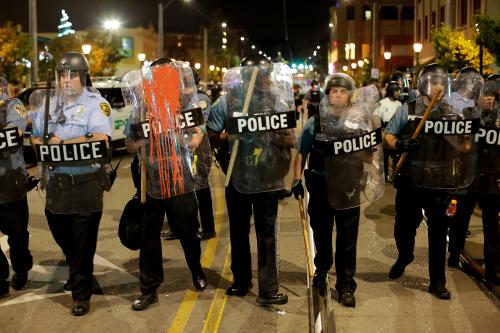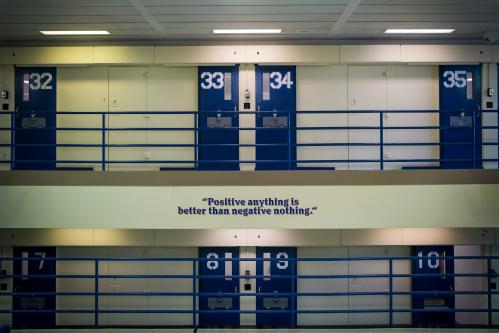On May 25, 2020, a veteran Minneapolis police officer murdered George Floyd in full public view. A bystander’s video of the event triggered nationwide protests and demands to “defund the police.” Beneath the slogan, which proved politically unfortunate for Democrats, reformers worked to develop policies that would minimize the use of force by police and make everyday policing more respectful of minority communities.
In Minneapolis, reform efforts yielded a proposed amendment to the city charter that would transform the police department into a Department of Public Safety. Although details were sparse, everyone understood that this would mean a shift of emphasis from armed policing to interventions by unarmed professionals—psychologists, social workers, and others—in fraught situations involving drugs and mental health issues.
The proposed amendment divided the state’s Democrats. Attorney General Keith Ellison and Rep. Ilhan Omar, a member of the progressive “Squad,” came out in favor. Minnesota’s two senators, Amy Klobuchar and Tina Smith, opposed it, as did Minneapolis Mayor Jacob Frey, who was also on the ballot seeking reelection.
Early public opinion surveys indicated that the amendment would pass, but a September survey of 500 African Americans in Minneapolis suggested otherwise. Seventy-five percent of African American respondents opposed reducing the size of the police force, and only 42% favored the amendment, compared to 51% of white Minneapolis residents. Ea Porter, a resident of the mostly Black north side of Minneapolis spoke for many. “Don’t experiment on us,” she said, “because we’re the ones that are going to be hit hardest first.”
The backdrop to these sentiments was a surge in violent crime. In 2020, homicides in Minneapolis rose by 58%. This year, Minneapolis is on track to record the highest murder rate in a generation. African American residents tell grim stories of children killed while playing and terrified residents installing bullet-proof barriers in their bedrooms.
These events help explain the results of last night’s election in Minneapolis. The incumbent mayor won an easy victory against a progressive challenger, and the charter amendment lost by 12 percentage points. A report from Minnesota Public Radio found that at the precinct level, support for Mayor Frey and opposition to the charter amendment were tightly linked. In a statement, Frey said that it was time to “stop with the hashtags and slogans and the simplicity” and to “unite around things that we all agree on.”
Results from state and local elections around the country indicate that most Americans agree with the mayor of Minneapolis. But with Congress hopelessly deadlocked on criminal justice reform, commonsense policing policies must begin at the grassroots.






Commentary
Message from Minneapolis: Reform the police but don’t defund them
November 3, 2021